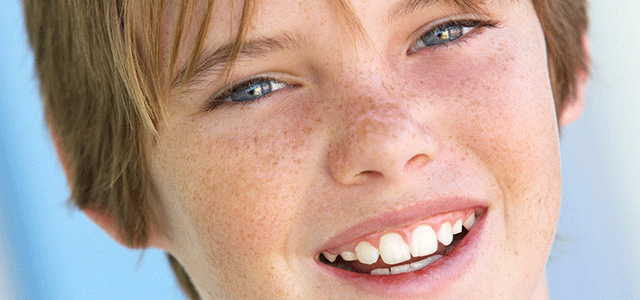My Teen Has Excessive Saliva... Should I Worry?

Parents tend to have an intimate relationship with drool. After all, since infants seem to have absolutely no idea what to do with all that saliva in their mouths, they tend to just let it drip out … all over your arm, your shoulder, your relatives, and the floor.
Thankfully, this type of drooling doesn't last very long, abating around the time your toddler's teeth start to arrive. However, when excess saliva and drooling appears in an older child, you may wish to dig a little deeper to find the root cause.
Generally speaking, excess saliva production, or simply, hyper-salivation, is not a common indicator of a serious illness. It can, however, be an annoying accompaniment to daily living, and if you have a teen suffering from the malady, they may press you for help to find a solution to avoid any undue social stress.
There a few common causes for hyper-salivation, so let's take a look at the top five:
- GERD: Acid reflux disease creates more saliva in an attempt to combat the acid that flows from the stomach upwards to the esophagus. This is, by far, the most common reason for increased saliva among adults, but it can also affect teenagers, and is frequently the cause of drooling in toddlers. Teenagers are certainly not immune to GERD, and these days, physicians are seeing it appear in younger populations due to a greater consumption of beverages that contain citric acid like energy drinks, sports drinks, and soda.
- Poorly-Fitted Orthodontics: An ill-fitting retainer, or a braces bracket that is off-kilter can interfere with proper swallowing and prohibit the timely swallowing of saliva. Likewise, if your child has undergone orthodontic work, but does not currently wear a retainer, even the placement of their teeth can create issues with proper swallowing. Check with your orthodontist, or dentist can check to see how your child's bite might be causing issues.
- Certain Medications: Medications, such as clonazepam (Klonopin), clozapine (Clozaril, Fazaclo ODT), pilocarpine (Salagen) and carbidopa-levodopa (Parcopa, Sinemet) can create issues with increased salivation. Are any of these names on your child's medication list?
- Allergies and Sinusitis: Immune related distress and sinusitis can most certainly trigger hyper-salivation. Speak with your allergist for suggestions or alternative therapies if your child is recently experiencing problems.
- Pregnancy: Hormonal upset, nausea and GERD all combine to create the perfect environment for hyper-salivation. If your teen is pregnant, this could be a contributing factor.
If you have visited with your dentist, doctor, and allergist, and are still unable to pinpoint a reason for your child's hyper-salivation, you may wish to schedule an appointment with an Ear, Nose and Throat (ENT) physician to explore further possibilities.
In most cases, hyper-salivation is temporary and related to one of the above causes, but if you still don't have the solution you're seeking, a visit with an ENT might be a good idea to rule out anything more serious.
